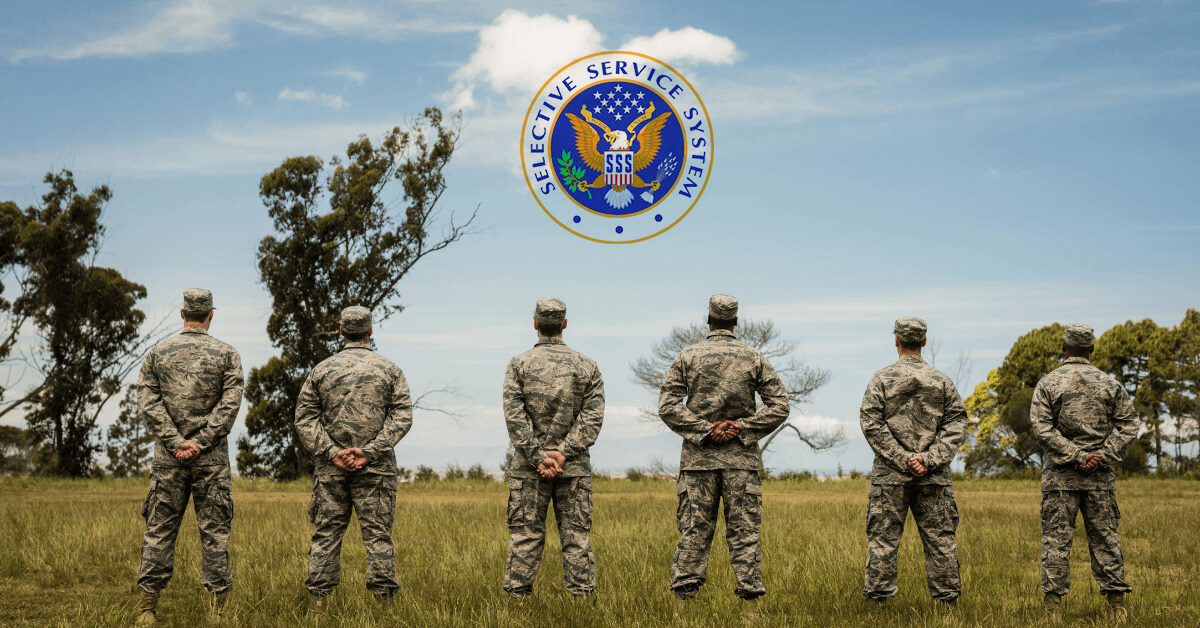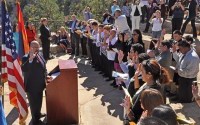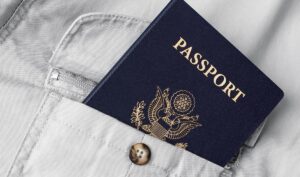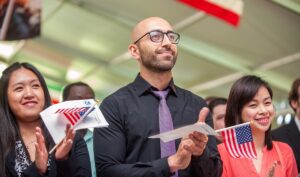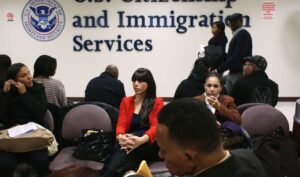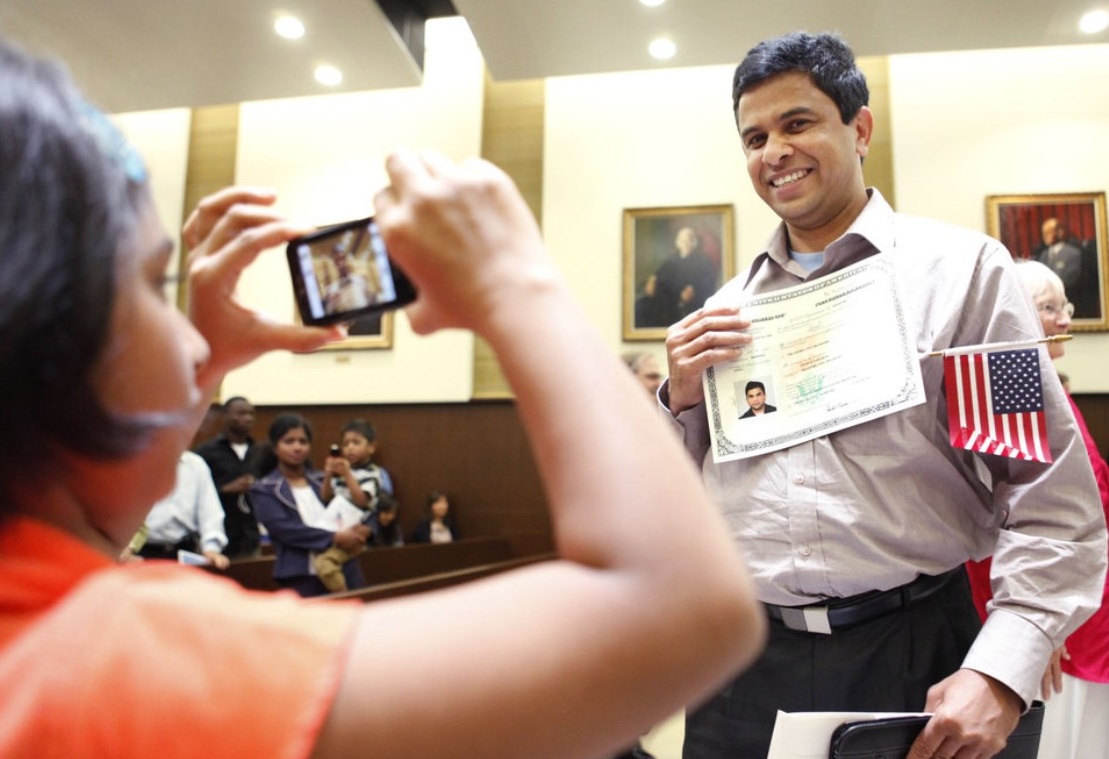
Applying for U.S. citizenship through naturalization is a monumental step. However, receiving a denial on your Form N-400, Application for Naturalization, can be disheartening. Understanding the common reasons for denials and how to avoid them is essential for increasing your chances of success. Here are the top reasons why Form N-400 applications are denied and practical tips to navigate the process effectively.
How Likely is a Form N-400 Denial?
Reasons USCIS May Deny an N-400 Application
- Failing the English and Civics Tests
- Criminal History and Good Moral Character
- Failure to Register for Selective Service
- Insufficient Continuous Residence and Physical Presence
- Not Meeting Financial Obligations or Tax Issues
- Fraud and Misrepresentation
- Errors on the Form N-400
Request for Hearing after N-400 Denial
How CitizenPath Can Help
How Likely is a Form N-400 Denial?
Naturalization is often the pinnacle of a long journey over many years and many miles. According to data from U.S. Citizenship and Immigration Services (USCIS), almost 4.5 million permanent residents have naturalized as U.S. citizens in the past five years. However, during the same period, over 459,219 permanent residents had their Form N-400, Application for Naturalization, denied. USCIS denies an average of about 10 percent of applications each year.
N-400 Denials by Fiscal Year
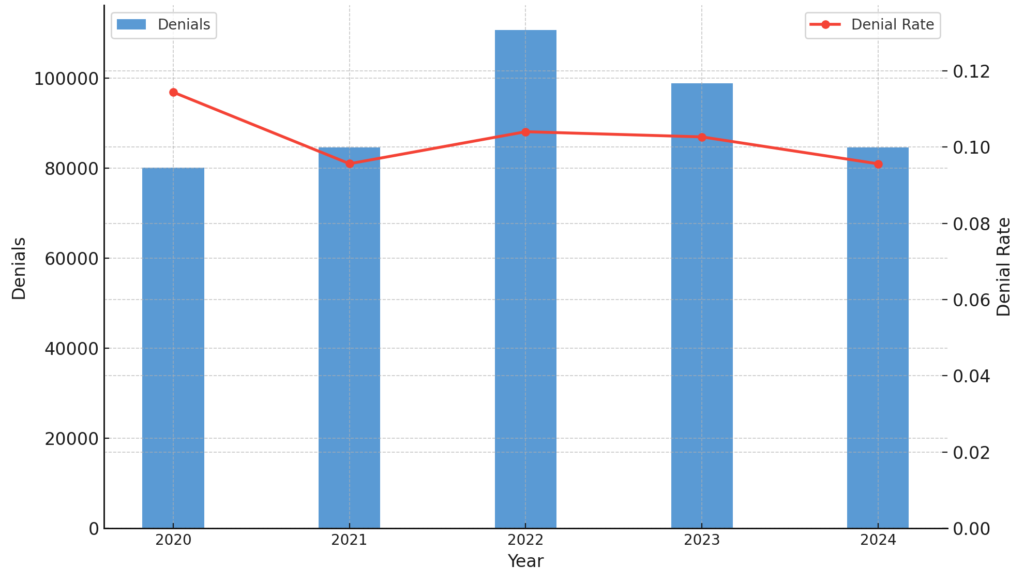
There are many reasons Form N-400 gets denied. We’ve compiled a list of some of the most common reasons for a continuation or denial of a naturalization application.
7 Reasons USCIS May Deny an N-400 Application
It’s important to understand that by filing N-400, the applicant is inviting USCIS to thoroughly review the immigrant’s entire case file one more time. There can be risks associated with this. USCIS may uncover something it didn’t find before. Therefore, it’s worthwhile to understand where other applicants have run into trouble. If you believe one of the following scenarios may affect you, speak to an immigration attorney before filing Form N-400.
In no particular order, seven of the more common reasons for a continuation or denial of a Form N-400, Application for Naturalization, include:
Failing the English and Civics Tests
One of the most common reasons for Form N-400 denial is failing the required English language and U.S. civics tests. These tests assess your ability to read, write, and speak basic English, as well as your knowledge of U.S. history and government.
How to Avoid This Issue:
- Use USCIS Study Materials: USCIS provides free resources, including flashcards, videos, and practice tests. These tools are excellent for preparation. Start citizenship test prep >>
- Enroll in Classes: Local community organizations and adult education centers often offer English and civics classes tailored to naturalization applicants. Find classes >>
- Know the Exceptions: Some applicants qualify for exemptions based on age, length of permanent residency, or certain medical conditions. For example, if you’re 50 or older and have been a permanent resident for at least 20 years, you may take the civics test in your native language. Explore test exemptions >>
Remember, you have two opportunities to pass. If you fail during your initial interview, a retest will be scheduled within 60 to 90 days.
Criminal History and Good Moral Character
USCIS requires applicants to demonstrate good moral character (GMC) during the statutory period—generally five years before filing (three years if married to a U.S. citizen). Certain criminal offenses can lead to a determination of poor moral character, resulting in denial.
You'll need to disclose crimes (misdemeanors and felonies), including any drug offenses. Although a traffic violation isn't a reason for a Form N-400 denial, you must list your traffic citations. When applying for naturalization, USCIS will obtain your biometrics and run a criminal background check.
How to Avoid This Issue:
- Seek Legal Advice: If you have a criminal record, consult an experienced immigration attorney before applying. They can assess how your record might impact your application.
- Provide Full Disclosure: Always disclose any arrests or convictions, even if they were expunged or occurred outside the statutory period. Failure to do so can lead to a finding of misrepresentation.
- Rehabilitative Evidence: If applicable, submit evidence of rehabilitation, such as completion of community service, participation in programs, or character reference letters.
If you have ever been arrested, speak with an experienced immigration attorney before filing Form N-400, Application for Naturalization. You can’t avoid the problem. A criminal history will catch up to you even if you want to remain a permanent resident.
Failure to Register for Selective Service
Male candidates may be surprised to learn that failing to register for Selective Service can create a major issue when filing the Application for Naturalization. Men between the ages of 18 and 26 are expected to register for the Selective Service and provide proof for the purposes of naturalizing as a U.S. citizen. Failing to register can result in an N-400 denial if USCIS determines your omission was knowing and willful.
How to Avoid This Issue:
- Register As Required: If you’re in the eligible age range, register promptly at www.sss.gov.
- Provide Evidence: If you’re over 26 and failed to register, you’ll need to demonstrate that the failure was not intentional or that you were exempt. Supporting documents, such as a sworn statement, can help.
Insufficient Continuous Residence and Physical Presence
To qualify for naturalization, you must meet the continuous residence and physical presence requirements. Extended trips outside the U.S. can disrupt your eligibility.
Generally, you must have five years of continuous residence as a permanent resident (three years for those married to U.S. citizens). Trips longer than six months can break continuous residence. You must be physically present in the U.S. for at least half of the required continuous residence period.
How to Avoid This Issue:
- Avoid Lengthy Trips: Keep all absences from the U.S. to 180 days or less.
- Document Your Travel: Keep a detailed record of all trips abroad, including dates and purposes.
- Double Check Your Math: When using CitizenPath to prepare Form N-400, our trip calculator will make sure you meet both requirements.
Not Meeting Financial Obligations or Tax Issues
Many Americans, including permanent residents, experience financial problems that result in foreclosure, bankruptcy, and unpaid debts. The good news is that debt alone is not a bar to naturalization. However, there are some financial issues that affect the moral character requirement and could interfere with your ability to naturalize as a U.S. citizen.
An applicant that fails to make timely child support payments or meet tax obligations could have the Form N-400 denied.
How to Avoid This Issue:
- Stick to the Plan: Ensure you’re up to date on all tax filings and payments. If you owe taxes, work with the IRS to establish a payment plan and provide evidence to USCIS.
- Provide Evidence of Support: If you live apart from your children, demonstrate your efforts to provide for your children financially. If a court has ordered child support, maintain detailed records of your payments, such as receipts or bank statements. Ensure all payments are up to date before filing Form N-400.
Fraud and Misrepresentation
If USCIS believes that your answer to a question is deceptive or untrue, your Application for Naturalization will be delayed and could be denied. It doesn’t matter if the error was innocent. You must make sure that your application is true and accurate when filed. If the information is difficult to obtain and you cannot obtain it (e.g. travel history), you must make a reasonable effort to find the answer.
How to Avoid This Issue:
- Do Your Research: Make a reasonable effort to gather all necessary information, such as travel history or prior addresses.
- Be Honest: Always provide truthful answers to every question on Form N-400 and during your interview. Even minor inaccuracies can cause problems.
Be honest with your answers. If you feel that an honest answer may create a problem with naturalization, that’s a good indicator that you need to speak to an attorney before filing Form N-400.
Errors on the Form N-400
Mistakes on your application can lead to delays or denials. Common errors include incomplete answers, inconsistencies, and forgetting to include required documents.
How to Avoid This Issue:
- Double-Check Your Application: Review every section carefully before submission.
- Provide Supporting Documents: Include all necessary documents, such as a copy of your green card, tax returns, and evidence of marital status if applicable.
- Use CitizenPath: CitizenPath provides step-by-step guidance to help you prepare a complete and accurate Form N-400. Their software reviews your answers for errors and ensures you include the correct supporting documentation.
Request for Hearing after N-400 Denial
If USCIS determines you need to provide additional documents or evidence, you may be given Form N-14, Request for Additional Information, Documents or Forms. You will need to provide the additional documentation requested to continue the naturalization process.
If your N-400 was denied and you feel that USCIS was wrong to deny you citizenship, you may request a hearing with a USCIS officer. Your denial letter will explain how to request a hearing and will include the form you need. The form for filing an appeal is the N-336, Request for Hearing on a Decision in Naturalization Proceedings. You must file the form with USCIS, including the correct fee, within 30 days after you receive a denial letter.
Form N-400 denials can be avoided by understanding the common pitfalls and taking proactive steps to address them. By preparing thoroughly, staying organized, and seeking professional assistance when needed, you can maximize your chances of becoming a U.S. citizen.
How CitizenPath Can Help
Applying for naturalization can be complex, but CitizenPath simplifies the process. Our online service provides personalized guidance to help you prepare Form N-400 accurately and avoid common mistakes. You’ll receive instant alerts for potential issues and a detailed set of filing instructions tailored to your case.
Individuals, attorneys and non-profits use the service on desktop or mobile device to prepare immigration forms accurately, avoiding costly delays. CitizenPath allows users to try the service for free and provides a 100% money-back guarantee that USCIS will approve the application or petition. We provide support for the Naturalization Application Package (Form N-400), Citizenship Certificate Package (Form N-600), and several other immigration services.
Want more immigration tips and how-to information for your family?
Sign up for CitizenPath’s FREE immigration newsletter and
SAVE 10%
on our immigration services


